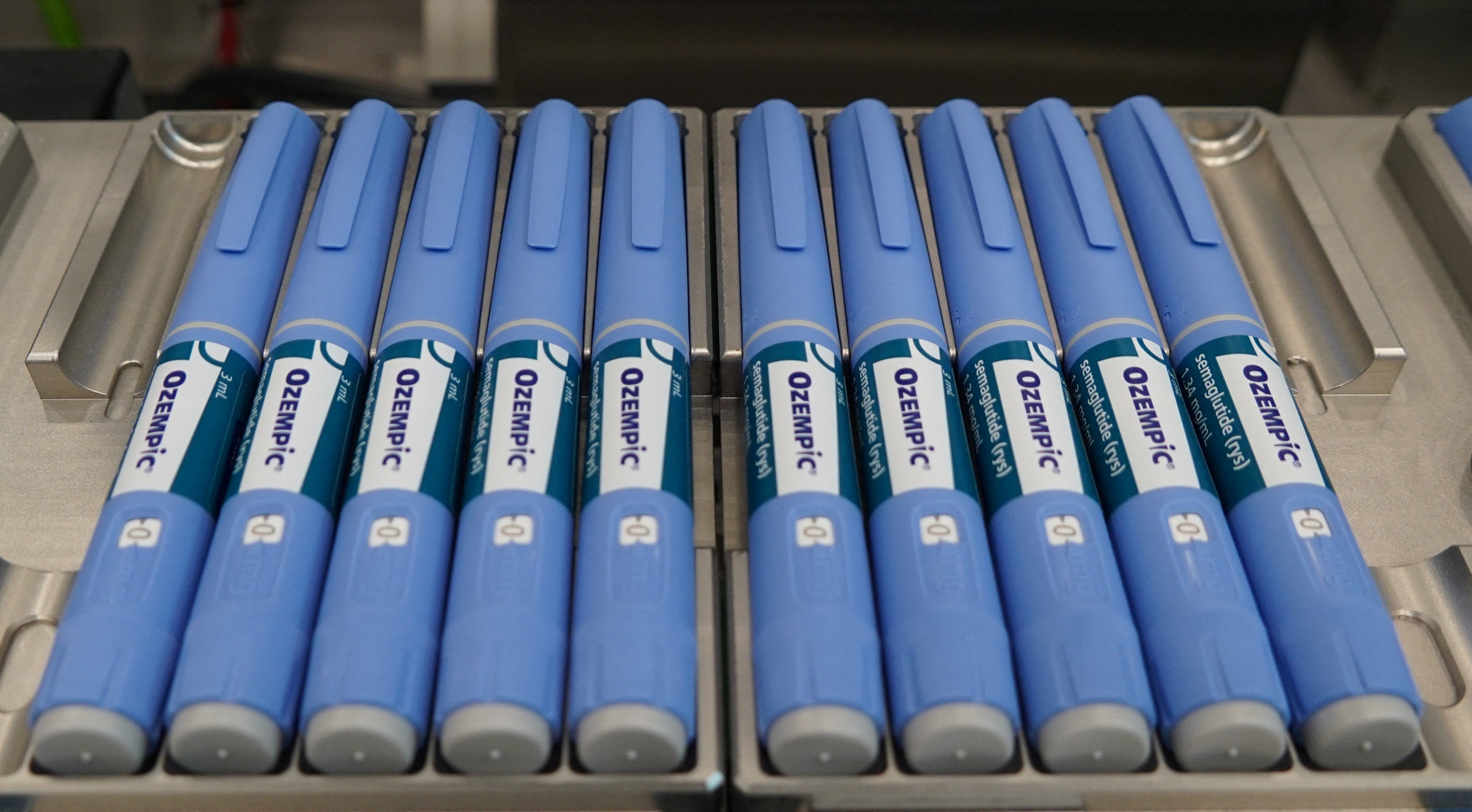A weight loss miracle! New shot does better than Ozempic and Wegovy during trials
Tirzepatide, which is sold under the brand names Mounjaro and Zepbound – which treat diabetes and weight loss, respectively – leads to more weight loss than semaglutide, new research has shown
A new weight loss drug is more effective than medications such as Ozempic and Wegovy, new research suggests.
Tirzepatide, which is sold under the brand names Mounjaro and Zepbound – which treat diabetes and weight loss, respectively – leads to more weight loss than semaglutide.
Semaglutide is the active ingredient in Novo Nordisk’s Wegovy and Ozempic, which have been taken for weight loss by an estimated 15.5 million Americans, according to a Gallup poll released in May.
A new study, published Monday in JAMA Internal Medicine, is thought to be the first head-to-head comparison of the two weight loss drugs.
Electronic health records from more than 41,000 adults who were overweight or obese and had been prescribed one of the two drugs for the first time were analyzed during the study, though participants weren’t excluded if they had Type 2 diabetes.
More than 9,100 were prescribed tirzepatide, and more than 32,000 were prescribed semaglutide.

Among its conclusions were that those receiving tirzepatide were more likely to achieve 5 percent or greater, 10 percent or greater, and 15 percent or greater weight loss and experienced larger reductions in body weight at three, six, and 12 months.
People who took semaglutide lost, on average, 3.6 percent of their body weight after three months; 5.8 percent after six months; and 8.3 percent after 12 months.
In contrast, those who took tirzepatide lost a greater percentage of body weight each month: an average of 5.9 percent of their body weight after three months; 10.1 percent after six months; and 15.3 percent after 12 months.
“The majority of patients on both medications experienced clinically meaningful weight loss, but those patients that took tirzepatide experienced significantly more,” said the study’s lead author, Tricia Rodriguez – principal applied scientist at health care data and analytics company, Truveta Research.
She added that researchers had noticed no significant difference in the risk of serious side effects, such as gastroparesis, also known as stomach paralysis, between the two drugs.

It comes after both The World Health Organization (WHO) and drugmaker Eli Lilly and Co. warned people last month to be wary of fake versions of both tirzepatide and semaglutide.
WHO said that it had fielded several reports of fake semaglutide in all geographic regions of the world since 2022, while Lilly said it was “deeply concerned” about growing online sales and social media posts involving phony or compounded versions of tirzepatide.
The Indianapolis-based company said it was the only lawful supplier of those drugs, and it does not provide tirzepatide to compounding pharmacies, wellness centers, or online retailers.
Lilly said fake versions of its drugs frequently advertised or sold online are never safe to use.
Join our commenting forum
Join thought-provoking conversations, follow other Independent readers and see their replies
Comments
Bookmark popover
Removed from bookmarks